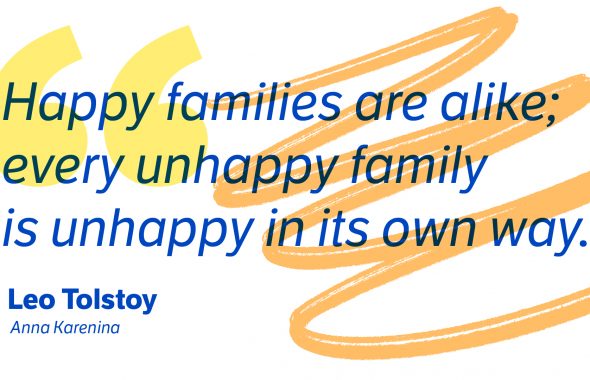Just like any other close-knit community, the gaming community has its own commonly used slang words and phrases—and navigating them can be tough for a noob. Whether you’re acting pretty sus in Among Us or carrying the team in a game of League of Legends, you’re bound to pick up a few new words and phrases. So hit the pause button and take a peek at the following list. It’s time to level up on your gaming slang.
casuals
Let’s start with a term you don’t want to hear about your own playing. The term casuals, or the harsher filthy casuals, is used in gaming to refer to people who play casually, meaning that they don’t invest a lot of time or commitment into a game. Generally, this means they might play a game like The Sims or Minecraft; these are games that the most casual players can enjoy without much of a time investment. When these so-called casuals do play a harder game, especially a multiplayer game, they may face hostility from some of their teammates or opponents for their lack of skill.
Gamers use the term casual or filthy casual as a general insult to mock someone who is less skilled or knowledgeable. For example, a gamer who only plays on PC may refer to gamers who play on game consoles as filthy casuals because they view console gaming as inferior.
NPC
In gaming, any character that is under the control of a player is known as a player character or PC. Any character that isn’t under control of a player is a nonplayer character or NPC. In general, the term NPC is more often used to refer to characters that are friendly or at least nonaggressive to the player. Rather than decide their own actions, NPCs do whatever a game designer has programmed them to do.
⚡️Did you know ... ?
In 2018, the concept of an NPC inspired a notable meme. The NPC meme applied the term NPC to people who were supposedly unable to make their own decisions and simply did whatever their favorite celebrity or social media influencer told them to do. The meme implied that these people were not real-life “player characters” and were simply shells that did what they were told, much like NPCs in video games.
boss
In games, the term boss is used to refer to strong enemies that are a significant challenge to the player and they must be defeated in a boss fight. Typically, bosses appear at the end of levels and/or provide rewards for players that are able to defeat them. In most games, a really difficult final boss is the last challenge a player will face and must be beaten to finish the game.
Boss is a common term in gaming, and even casual gamers are usually familiar with it. The term is so common that it is sometimes applied outside of gaming to refer to difficult opponents or challenges that someone has to overcome.
nerf and buff
The terms nerf and buff are commonly used in gaming to refer to something getting weaker (in reference to the Nerf brand of foam toys) or stronger, respectively. Over time, gamers will often figure out which characters or strategies are especially strong or weak—leading game designers to respond in an effort to balance out gameplay. Game designers can make changes or adjustments to the games through updates or sequels in order to try to make every character, weapon, or tactic competitively viable.
The terms nerf and buff are so common in gaming that even media outlets, such as ESPN, use them when reporting on changing strategies in competitive gaming. For example, you might say The game development team nerfed several guns in the recent update or The ninja class got a lot of nerfs in this update.
Take a trip down memory lane with this look at some of everyone’s favorite classic toys.
livestream
When it comes to videogames, a livestream refers to a person broadcasting themselves playing a videogame to an audience in real time. While this may sound unusual to those unfamiliar with it, gaming livestreams are extremely popular, and livestreamers may have audiences in the tens of millions.
Livestreaming is popular on many different social media platforms, including YouTube and TikTok. Modern livestreams aren’t just confined to gaming, and people have developed large audiences by livestreaming activities like cooking or even eating.
speedrun
A speedrun is a specific type of gaming in which a person attempts to finish a game as fast as possible. In addition to beating the game very fast, a speedrun may include additional challenges such as not dying once or even never getting hit by an enemy. Speedruns are often a popular topic of livestreams, where audiences watch especially skilled players attempt seemingly impossible feats.
Speedruns have become so popular that the Guinness Book of World Records now keeps track of many of them. For example, the world record speedrun of the original Super Mario Bros. sits at just under 4 minutes and 55 seconds.
PogChamp
PogChamp is an emote (a small image in a chat or animation in a video game that conveys an action, reaction, or emotion) on the video game livestreaming platform Twitch. Twitch has a chat feature that allows audience members to talk to each other and the streamer during broadcasts. Twitch chats often involve spamming of emotes, such as PogChamp or the equally popular Kappa.
The current version of the PogChamp emote depicts a komodo dragon head. Until 2021, the emote depicted a silly face made by professional gamer Ryan Gutierrez. (Twitch switched out his face after he received negative attention due to controversial political comments.) The PogChamp emote and the word PogChamp are often used to express hype and excitement during Twitch livestreams.
git gud
Git gud, a corruption of the phrase “get good,” is a phrase used in gaming to mock someone’s lack of skill. The phrase is often jokingly used as “advice” to players struggling to beat a hard game, especially one that demands a lot of skill from the player. Git gud is also often used in a less friendly way to insult less skilled players in competitive multiplayer games, especially after killing or beating them.
gank
In gaming, a gank or the action of ganking describes a group of players who gang up on and kill a solo player. Usually, a gank involves a solo player that is caught unaware or is otherwise unable to defend themselves. Ganking is more common in MMORPGS, such as World of Warcraft, that feature opposing player factions that are hostile to one another and are incentivized to kill each other on sight. In gangster slang, gank means to rob or fraud someone, but it is unclear if this meaning is related to the gaming one.
rage quit
If you get so mad at a game that you angrily turn it off (and possibly hurl a controller or mouse), you have rage quit the game. Rage quits are especially common among blisteringly hard or unfairly challenging games that are infuriatingly frustrating. Alternatively, a player may rage quit if they are doing poorly in a multiplayer game or if faced with a game crashing, bugging, or freezing. Over time, the term rage quit became popular enough in gaming that it developed a mainstream use to refer to quitting anything out of frustration.
esports
Esports, short for electronic sports, refers to professional, competitive gaming. In recent times, competitive gaming has grown in scale and awareness due to the popularity of games such as Fortnite or League of Legends. Esports events are often covered by gaming or sports media outlets, and usually broadcast on livestreaming websites like Twitch. Popular genres of games played at the competitive level include shooters (like Call of Duty and Halo), MOBAs (like League of Legends), and fighting games (like Street Fighter or Super Smash Bros).
grind and farm
Grind and farm are two similar terms used in gaming to refer to monotonous activities. The word grind is used as a noun or verb to refer to doing the same thing over and over, such as killing enemies or digging up ore. Farm is a similar verb that refers to repeatedly harvesting the same items over and over. Farming may involve killing enemies to gather gold or gathering hard-to-find items through boring, repetitive tasks. In the past, grinding and farming were activities that a player avoided at all costs. However, many modern games (especially smartphone games) are designed around grind or farm tasks that involve watching ads.
mod
A mod, short for modification, is a piece of gaming content that was created by a player rather than by a game developer. For example, a mod might be an item or level created by a player. Mods are popular in PC gaming in particular, and they are often shared on mod websites or on social media communities. Some mods are so extensive that they can either completely fix a broken game or transform a game into a completely new experience, such as turning all of the dragons in fantasy game Skyrim into characters from Thomas the Tank Engine.
zerg
In gaming, the verb zerg refers to rushing in a huge mass toward a single enemy. Often, a zerg rush involves a horde of weak creatures or fighters trying to overwhelm a much larger or stronger opponent. The term zerg comes from the Zerg, an alien race from the Starcraft series of strategy games. In that game, the Zerg could mass produce tons and tons of weak units and swarm them at an opponent in unmanageable, overwhelming numbers. This tactic became so famous that the term zerg spread to other games to describe an attempt to overwhelm an enemy with sheer numbers rather than strategy.
cheese
The word cheese or cheese strategy is used in gaming to refer to a maneuver or tactic that relies on an exploit or cheap trick rather than skill. Cheesing an opponent could involve using the same fast, weak attack over and over until they die, for example. It is unknown exactly why cheap, exploitative strategies are called cheese, but the term has been used in multiplayer gaming since at least the early 1990s. Back then, the term cheese was popularized by players of Street Fighter 2 to refer to cheap, unfair strategies that a player could exploit to lock an opponent and leave them with little to no movement and dodging options.
Other interesting words
- meta/metagaming: The meta is the most popularly used strategy in a particular game. Metagaming refers to the practice of using online guides or other information outside the game itself to learn what the best strategy is.
- feeding: Intentionally giving points or kills to the other team
- throwing: Intentionally trying to lose the game
- griefer/griefing: A person who goes out of their way to annoy or harass other players
- camp: To remain in one spot while killing other players over and over. To spawncamp is to do this while killing players immediately as they respawn (come back to life).
- touch grass: To go outside. Usually said to imply a person should quit playing games.
- lag: A delay in response between a player pressing a button and something actually happening in the game. Lag is typically caused by poor internet connections, a slow computer, or issues with the game servers.
- ping: In computing, ping refers to a person receiving a signal from a server. In gaming, the word ping is used to refer to how good a player’s internet connection is. High ping means a player has slow or laggy internet and as a result will most likely be a detriment to the team.
- Lpb/Hpb: “Low-ping Bastard” and “High-ping Bastard.” These terms are used to refer to players with good or bad internet connections, most likely by another player who is upset about high ping on their team or low ping on the opposing team.
- noscope: Killing a player without using a scope on a gun that has one. This term is most often used to refer to sniper rifles or other long range weapons that are very difficult to use at close range.
- 360 noscope: A trick move in which a person with a sniper rifle jumps from a height, spins a complete circle, and kills another player without using the rifle scope. This move is extremely difficult to do and the term 360 noscope is often used (hyperbolically) to describe similarly impressive moves or tricks.
Get your game on with a quiz
Now that you know the lingo, consider yourself more than a casual gamer (or at least someone who can talk about gaming). If you want a little challenge that we’re sure won’t make you rage quit, then check out our quiz on these terms!












